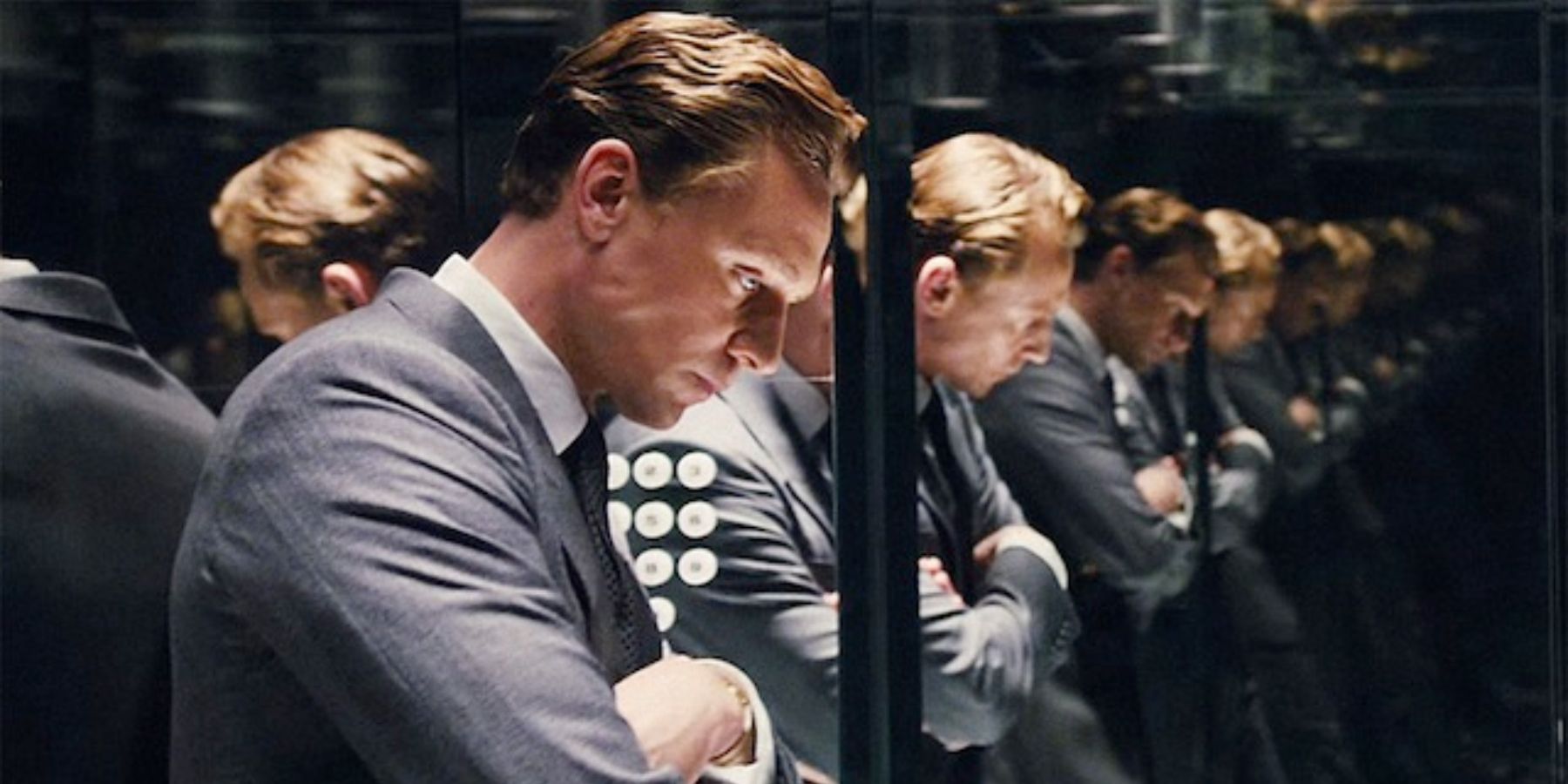
Uncovering Tom Hiddleston's Role in an Underappreciated Dystopian Film

High-Rise, a gripping dystopian drama-thriller, showcases Tom Hiddleston's exceptional performance This underrated gem is a must-watch, delving into the captivating story of societal collapse and Hiddleston's compelling character
Article Key Points
High-Rise is an underrated dystopian drama-thriller that explores themes of isolation, class division, and revolution. It received mixed but generally favorable reviews.
Tom Hiddleston delivers an incredible portrayal of Dr. Robert Laing, a character who spirals into disorder while trying to adapt to the unsettling dynamics of the high-rise society.
With its surreal and sci-fi elements, the film successfully creates a haunting and disturbing atmosphere. It prompts thought-provoking reflections on the impact of class disparities and societal norms within a system marked by strong divisions.
With the plethora of movies released annually, it is common for smaller projects to be overshadowed by blockbusters and high-budget productions. However, one hidden gem worth mentioning is High-Rise, a 2015 dystopian drama-thriller infused with elements of science fiction, featuring the talented Tom Hiddleston. Set in a luxurious skyscraper in 1975, this film immerses viewers in an unsettling atmosphere as the residents of the tower plunge into chaos. Though it may have faced mixed opinions and performed poorly at the box office, it garnered generally favorable reviews, scoring 4 out of 5 stars from The Telegraph, 7.0 out of 10 from IGN, and a 60% rating on Rotten Tomatoes. Undeniably, High-Rise is guaranteed to leave a lasting impression on anyone who dares to enter its unsettling world.
From the very beginning of his film career, Tom Hiddleston skyrocketed to international fame. His portrayal of Loki in the Marvel Cinematic Universe (MCU), which began with the 2011 film Thor, is undoubtedly his most celebrated role. This iconic character has defined his career for more than a decade, completely altering its course. However, Hiddleston has showcased his versatility by delving into a diverse range of characters alongside his depiction of the God of Mischief. One of his most underrated performances can be seen in High-Rise, a cinematic adaptation of J.G. Ballard’s novel of the same title.
What Is High-Rise About?
At the core of the movie lies Hiddleston's portrayal of a man who progressively surrenders to the mayhem occurring around him. This notable deviation from his past roles showcases Hiddleston's talent and versatility in a film that explores a sinister and enigmatic theme.
High-Rise | |
|---|---|
Director | Ben Wheatley |
Writer | Screenplay by Amy Jump, based on the novel High-Rise by J.G. Ballard |
Cast | Tom Hiddleston, Jeremy Irons, Sienna Miller, Luke Evans, Elizabeth Moss |
Genre | Drama, Dystopian, Thriller |
Release date | September 13, 2015 |
Runtime | 119 minutes |
Box office | $4.1 million |
Set in a dystopian world in 1975, High-Rise is situated in a lavish residential skyscraper complete with various amenities like a supermarket, pool, gym, and even a school. The building, designed to provide a flawless existence for its inhabitants, ensures they have no desire to venture beyond its walls. This isolation creates a distinct society, with each floor representing a different social class. The upper floors are inhabited by the wealthy and elite, while the middle-class residents occupy the lower levels. However, this unsettling class division system leads to chaos, resulting in an anarchist revolution and a collective descent into madness. The film follows a man who becomes a resident of the building and grapples with its rules, gradually understanding the society he is now a part of.
High-Rise delves into themes of isolation, social class divisions, revolution, and the vulnerability of society. It incorporates elements of surrealism and science fiction to establish the building's disturbing dystopian atmosphere. The movie progressively presents increasingly bizarre and unsettling scenarios, mirroring the protagonist's journey of understanding this world. Despite being relatively unknown, High-Rise is an underrated dystopian film that carries significant importance. It is rife with social commentary, provoking contemplation about class inequality, societal expectations, and the repercussions of a deeply divided system.
Who Does Tom Hiddleston Play In High-Rise?
Tom Hiddleston portrays Dr. Robert Laing, the protagonist of the film. Laing, a physiologist, moves into the towering building as a means to start afresh following his sister's passing. Throughout the narrative, he undergoes a profound internal transformation. Initially, a quiet and introspective individual in search of peace and solitude, Laing's mental state deteriorates as he becomes entangled in relationships and rivalries within the high-rise society, adapting to its disconcerting dynamics. In an interview with Esquire, Hiddleston explains that, owing to Laing's profession, he is able to emotionally detach himself from the unsettling events unfolding around him:
"What intrigued me most was that Laing is reactive while others are proactive. He remains quiet and observant as the other residents descend into chaos. [...] He harbors a great deal of private guilt and shame. Moving into this building was his attempt to escape life's complexities. He strives to maintain detachment, but ultimately fails. It's all about his unresolved guilt. There's a pervasive sense of guilt among the residents, and he is desperately trying to distance himself from reality. He desires to live in a lifeless, monotonous setting and don a bland suit, refusing to be a part of the chaos."
Dr. Robert Laing is portrayed as a morally ambiguous character, occupying a middle ground amidst the ongoing conflict. Throughout the story, he assumes the role of an observer rather than actively participating in the destruction and violence. Maintaining interests on both sides, he consciously avoids taking a definitive stance. Rather than facing reality, Laing deceives himself, striving to effect change within his own confined space, despite knowing that this will not resolve the larger issue at hand. The perspective of High-Rise predominantly revolves around Laing, allowing the audience to intimately witness the chaos unfolding within the building alongside him.
How Does High-Rise End?
Following the unsettling display of societal hierarchy, a sequence of events ensues, quickly plunging the building into chaos and marking the beginning of a true revolution. The once glamorous and opulent locations now lie in ruins as the residents' survival instincts kick in, leading many to succumb to the turmoil and engage in morally questionable actions. The building transforms into a literal battleground, and amidst a whirlwind of sex, drugs, violence, and death, Laing finds himself surrounded. In the midst of the ensuing mayhem and devastation, Laing, seemingly driven to madness, navigates his way to the penthouse, where he is confronted by the unsettling and surreal aftermath of the class war.
High-Rise director Ben Wheatley discussed the passive behavior of Laing, the protagonist, in an interview with No Film School. According to Wheatley, one's true essence is not determined by their words or the noise surrounding their opinions, but rather by their actions when given the opportunity to do something. Laing, as the protagonist, manages to slip through the cracks and only does the bare minimum necessary to survive without fully committing to anything or causing any trouble. This behavior, according to Wheatley, is rather detestable and serves as a defining moment for a person's success or failure as a human being. It is a revelation of their true identity.
The conclusion of High-Rise brings viewers back to where it all began - Laing standing on the penthouse balcony, roasting a dog's leg. He then returns inside and shares a portion with Charlotte, a single mother with whom he forms a bond throughout the film. They engage in a reflective conversation about the events that transpired, ultimately recognizing that history is bound to repeat itself. Meanwhile, Charlotte's son, Toby, who has constructed a radio tower, listens to a broadcast by Margaret Thatcher. Thatcher, in her speech, asserts that as long as state capitalism exists, true political freedom will remain unattainable.
I believe society is merely an illusion, and we all invest in it with the hope that it remains intact. However, when it collapses for many individuals, we tend to dismiss their misfortunes, thinking it won't happen to us. Yet, in due time, it does. Society, in any case, will always meet its demise, often within one's own lifetime. It just escapes our notice.
The film's absurdist style may initially seem meaningless, but it effectively delivers a message about the societal collapse. High-Rise is a powerful experience and is recommended for fans of Tom Hiddleston's work and dystopian genre enthusiasts, although it may not appeal to everyone.
Editor's P/S
1. High-Rise is a thought-provoking film that explores the dark side of human nature. The film's visuals are stunning, and the acting is top-notch. Hiddleston gives a particularly strong performance as Dr. Robert Laing, a man who is slowly driven mad by the isolation and chaos of the high-rise.
2. The film's themes of class division and social unrest are still relevant today, and it is a cautionary tale about the dangers of letting inequality go unchecked. Overall, High-Rise is a well-made and thought-provoking film that is well worth watching. Despite its mixed reviews, it is a film that stays with you long after the credits have rolled.
















